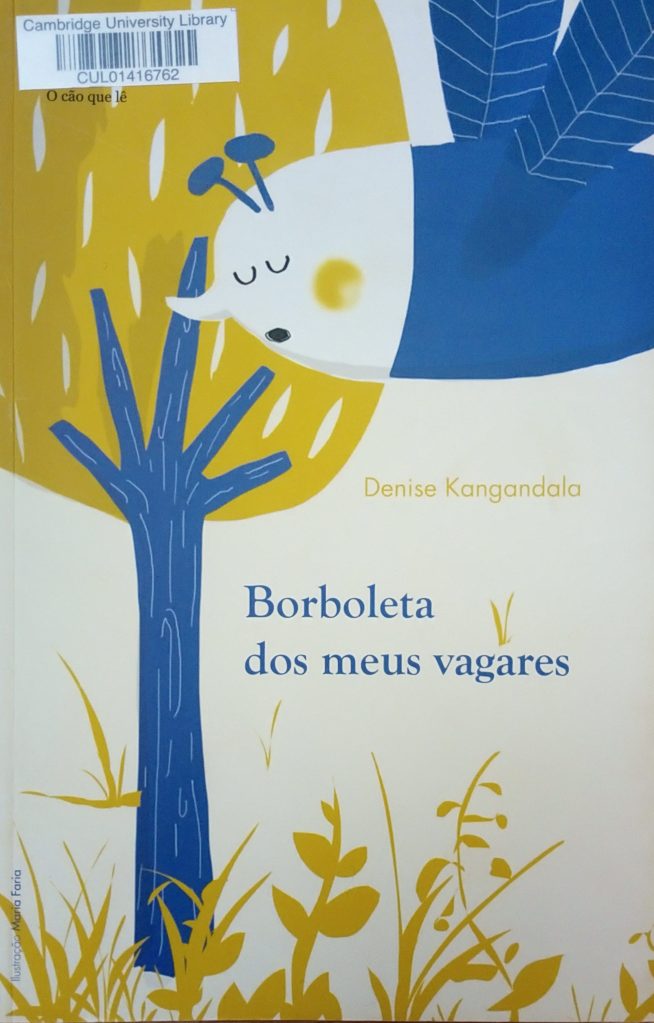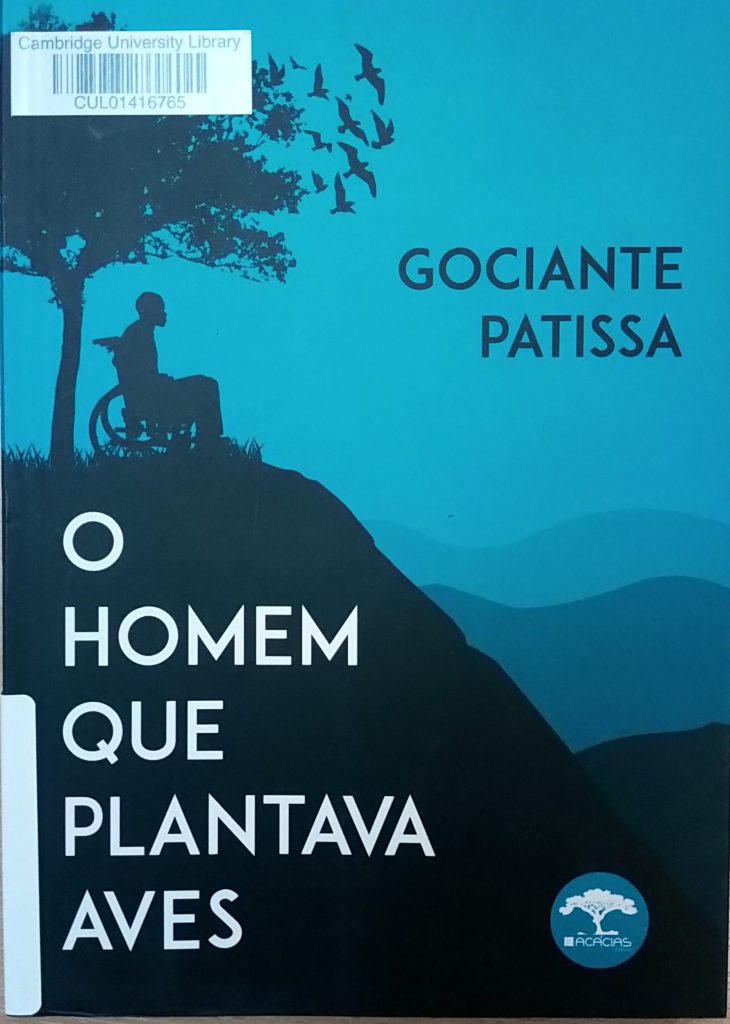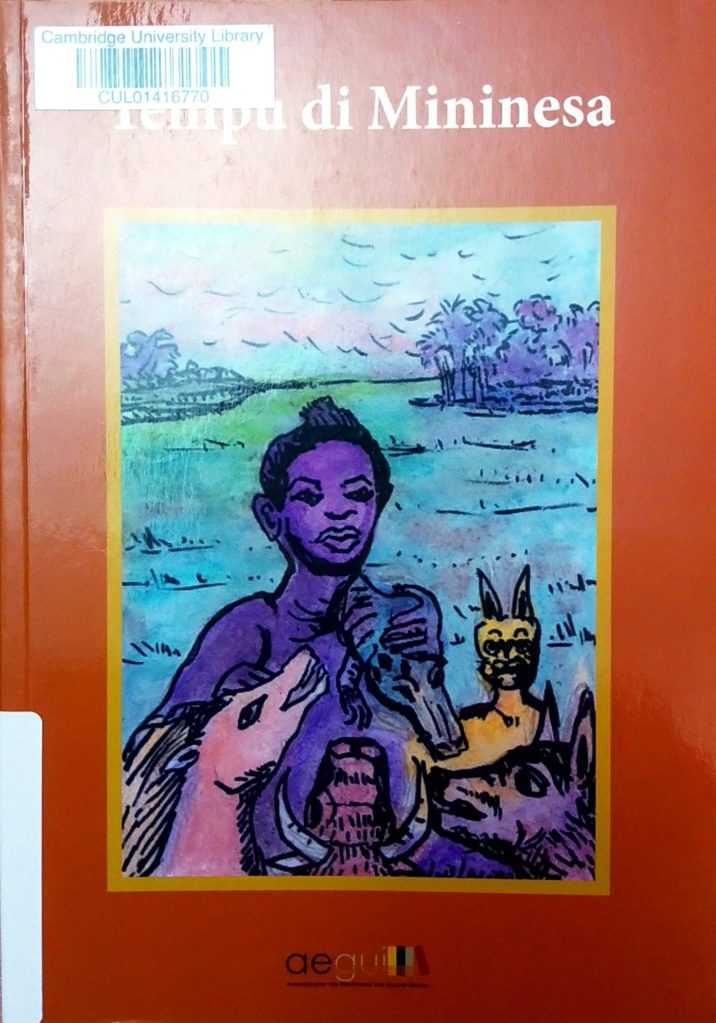Thanks to the sterling efforts of colleagues in Collections and Academic Liaison (CAL), a hitherto underutilised section of the Royal Commonwealth Society (RCS) library has recently been catalogued. 2252 titles running to almost 79 metres of shelving under the ‘Foreign colonies’ classification have now been added to iDiscover. Previously these titles were only discoverable through a labyrinthine card catalogue situated in the Rare Books Reading Room at Cambridge University Library; potential users had to know of the existence of this collection and had to physically visit the UL to access the card catalogue.
Continue reading “Cataloguing of the Royal Commonwealth Society Library’s ‘Foreign colonies’ section”Category: Portuguese
The Carnation Revolution – 50 years
Today marks 50 years since 25 April, 1974, the date of Portugal’s “Carnation Revolution”, which led to the overthrow of the authoritarian Estado Novo regime, the introduction of democracy in the country, and the withdrawal of Portugal from its African colonies. For more detailed information about 25 April, you can read our earlier post commemorating its 40th anniversary here.
Unsurprisingly, given this momentous anniversary, much more material related to the Revolution has been published recently in Portugal and elsewhere, so we have acquired many new relevant titles. The significance of 25 April in international terms is shown by the fact that, as well as the expected titles in Portuguese, in recent years we have also bought books on the topic in French, Spanish and English:
Continue reading “The Carnation Revolution – 50 years”Pride Month: Brazilian LGBTQ+ Donations
Since 2016, Cambridge University Library has received a series of donations of Latin American and Iberian material from Dr. Robert Howes*, a former academic librarian at the UL and other institutions.
The more recent donations are mostly from Brazil and are closely related to both his academic interests and his involvement in LGBTQ+ activism and publishing.
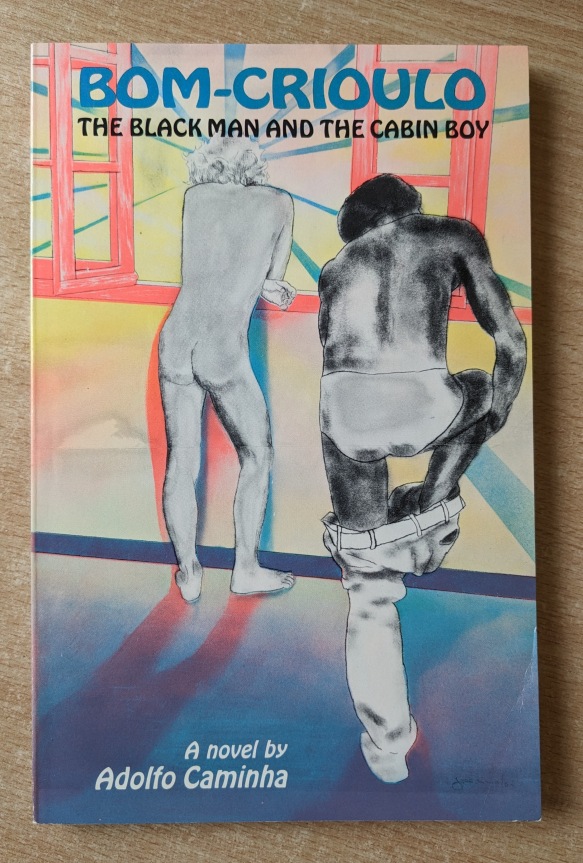
The first comprehensive study of the cartonera phenomenon
We are very pleased to announce the launch of the book Taking Form, Making Worlds: Cartonera Publishers in Latin America, on Friday 10th June at 4pm at Centre of Latin American Studies (Alison Richard Building, Seminar Room 204).

Lucy Bell (Senior Lecturer in Spanish and translation studies, University of Surrey), Alexander Ungprateeb Flynn (Assistant Professor of Anthropology and Contemporary Art, UCLA) and Patrick O’Hare (UKRI Future Leaders Fellow, University of St. Andrews) have collaborated with the University Library in the building up of our cartonera collection . They will be presenting and discussing their new book, the first comprehensive study of cartonera, in conversation with David Lehmann (University of Cambridge) and Clara Panozzo (Latin American and Iberian Collections, Cambridge University Library). The book is published by the University of Texas Press and is available online for Cambridge users here.
Drawing on interdisciplinary research conducted across Mexico, Brazil, and Argentina, the authors show how this hands-on practice has fostered a politically engaged network of writers, artists, and readers. More than a social movement, cartonera uses texts, workshops, encounters, and exhibitions to foster community and engagement through open-ended forms that are at once creative and social.
(from the publisher’s description)
You are all kindly invited to attend!
Clara Panozzo
The José Saramago Literary Prize
The José Saramago Literary Prize (Prêmio Literário José Saramago) is awarded biennially to young authors of unpublished fictional works in Portuguese. The prize is open to Lusophone writers under 40 years of age and it can only be awarded once in a lifetime to each writer (posthumous works are excluded). It was established in 1999 by the Fundaçāo Círculo de Leitores to celebrate the Portuguese Nobel laureate José Saramago, who won the Nobel Prize for Literature in 1998.
The José Saramago Prize is currently in its 12th edition, having been postponed last year as a result of the pandemic. The next winner will be announced in October 2022 instead, coinciding with the 100th anniversary of José Saramago’s birth.
Below are the prize winners with brief snapshots of their country of origin and background, some of their works, and other recognitions they have received. Unfortunately, we have gaps in this list, which we are trying to fill retrospectively.
1999 – Won by Paulo José Miranda for Natureza morta (On order)
Born in Paio Pires, Seixal, Portugal, 1965. He is a writer of fiction, poetry, and drama. See our Library holdings for this author here.
Other awards: Grande Prêmio de Poesia Teixeira de Pascoaes (1998) for A voz que os trai, his first book of poetry; Prêmio da Sociedade Portuguesa de Autores (2015) for his book of poetry Exercícios do humano.
2001 – Won by José Luis Peixoto for Nenhum olhar (C200.c.5593)
Born in Galveias, Ponte de Sor Portugal, 1974. One of the most acclaimed Portuguese contemporary authors, he was written in multiple literary genres (fiction, poetry, drama, travel literature, and children’s literature) and has been translated into more than 30 languages. See our Library holdings for this author here.
Other awards: He has won numerous national and international awards, including the Prêmio da Sociedade Portuguesa de Autores (2013) for his book of poetry A criança em ruínas (Library Storage Facility); and the Oceanos Prize (2016) for his novel Galveias (C210.c.1620).
2003 – Wond by Adriana Lisboa for Sinfonia em branco
Born in Rio de Janeiro, 1970. She writes fiction, poetry, and books for children. Considered as one of Brazil’s most prominent writers, her works have been translated into most major languages. See our Library holdings for this author here.
Other awards: At the 2007 Hay Festival/Bogotá World Book Capital she was named as one of the 39 most distinguished writers under the age of 39. She has also been shortlisted for numerous awards, including the Sāo Paulo Prize for Literature in 2011 and 2014. She is the author of Azul Corvo (C207.c.3027), declared book of the year by The Independent newspaper in 2013 (Crow Blue, C207.c.8162).
2005 – Won by Gonçalo M. Tavares for Jerusalém (C200.d.7647)
Born in Luanda, Angola, 1970. He is considered one the best fiction writers of his generation. His work Jerusalém was included in the European edition of The 1001 Books to Read Before You Die list. His books have been published in more than 30 countries. See our Library holdings for this author here.
Other awards: Prêmio Portugal Telecom (2007) for Jerusalém.
2007 – Won by Valter Hugo Māe for O remorso do Baltazar Serapiāo (C203.c.2330)
Born in Henrique de Carvalho, Colonial Angola, 1971. He is a leading Portuguese author, an editor, and an artist. He has written more than 30 books (fiction, poetry, and children’s literature). See our Library holdings for this author here.
Other awards: Grande Prêmo Portugal Telecom de Literatura for A máquina de fazer espanhóis (C207.c.5153) (in the “Best book of the year” and “Best novel of the year” categories, 2012)
2009 – Won by Joāo Tordo for As três vidas (C207.c.6289)
Born in Lisboa, 1975. Fiction writer (novels, short stories). His works have been translated into several languages and published in over a dozen countries. See our Library holdings for this author here.
Other awards: Portuguese Young Creators Award for Literature (2001); Prêmio Literário Fernando Namora (2021) for the novel Felicidade (C217.c.2495); shortlisted twice for the Prêmio da Sociedade Portuguesa de Autores in the “Best narrative fiction” category (2011, 2015)
2011 – Won by Andrea del Fuego for Os malaquias
Born in Sāo Paulo, 1975. Writer of novels, short stories, and young adult books. Her work features in several anthologies, including Mais 30 mulheres que estāo fazendo a nova literature brasileira (C204.c.2926) and Capitu mandou Flores (C205.c.5602)
2013 – Won by Ondjaki for Os transparentes (C203.d.3833)
Born in Angola, 1977. He is one of the most prominent writers of Portuguese-Africa. He has written novels, short stories, drama, film scripts, poetry, and children’s books. See our Library holdings for this author here.
Other awards: Grande Prêmio de Conto Castelo Branco (2007) for Os da minha rua (Library Storage Facility); 2010 Jabuti Prize for AvóDezanove e O segredo do soviético (C202.d.794).
2015 – Won by Bruno Vieira Amaral for As primeiras coisas (C212.c.8621)
Born in Barreiro, Portugal, 1978. Writer, literary critic, and translator, selected by Literary Europe Live as one of the 10 New Voices from Europe 2016. He is deputy editor of the literary magazine LER (L700.b.128 [p/hole: W.384]). See our Library holdings for this author here.
Other awards: Time Out Lisboa’s Book of the Year Award (2013); Fernando Namora Literary Award (2013), PEN Narrative Prize (2013) for As primeiras coisas; Grande Prêmio de Conto Castelo Branco (2021) for his book of short stories Uma ida ao motel (C218.c.1464)
2017 – Won by Julian Fuks for A resistência (C204.d.9145)
Born in Sāo Paulo, 1981. He is one of Brazil’s most celebrated young writers, author of novels and short stories. He was featured in Granta’s best young Brazilian novelists magazine. See our Library holdings for this author here.
Other awards: He was awarded the Jabuti Award for Book of the Year (2016), the Oceanos Prize (2016), and the Anna Seghers Prize (2018) for A resistência.
2019 – Won by Afonso Reis Cabral for Pāo de açúcar (C217.c.9987)
Born in Lisboa, 1990. Writer of fiction and poetry. In 2005 he published his book of poetry Condensaçāo, a collection of poems mostly written in his childhood. See our Library holdings for this author here.
Other awards: Prêmio LeYa (2014) for O meu irmāo (C211.c.5011)
Sonia Morcillo García
December 2020 print arrivals from Africa (in Portuguese): literature, and the diaries of the first female African president
I was very pleased when back in early December I was asked to come to the Library for one day to help with the processing of newly arrived print books and reader requests. Going back to our beloved UL meant catching up with a few colleagues (from a distance) and also remembering how very satisfactory it is to deal with physical books from a sensory perspective. Touching many diverse books is definitely something I was missing, as my colleague felt too. I also remembered a comment by another -former- colleague: she thought books coming from some of the countries we deal with had distinctive smells.
That day back in the Library I could not distinguish any particular smell other than paper of varying ages, but I was certainly very happy to see books from Portuguese-speaking Africa arriving to enrich our collections. In the gallery below you will see some covers that illustrate a range of literary works published in Angola and Guinea-Bissau. Some of them are poetry works, like Sem intenção, by Rui Jorge Semedo (Guinea-Bissau), Borboleta dos meus vagares, by Denise Kangandala (Angola) and Alma de kaluanda, by Cremilda de Lima (Angola). Others are collections of short stories like O homem que plantava aves, by Gociante Patissa (Angola) and Fora de Jogo (Guinea-Bissau), or collections of folk tales like Tempu di Mininesa (Guinea-Bissau), edited and translated by Teresa Montenegro and Carlos de Morais.
The book that caught my attention however was Os meus três amores: o diário de Carmen Maria de Araújo Pereira.
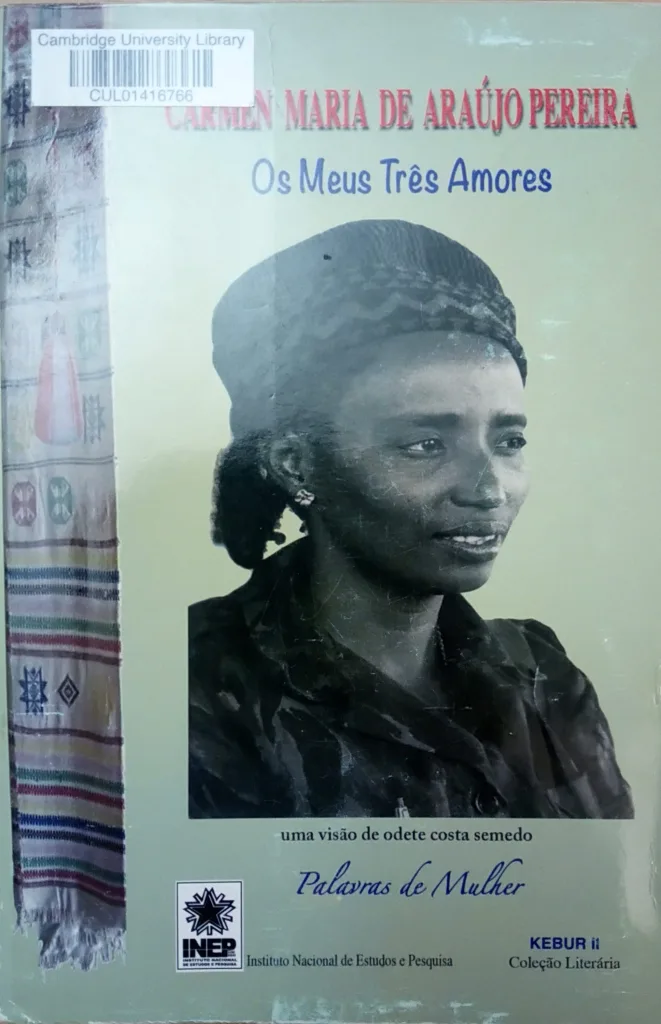
Carmen Pereira became the first African female president when she led Guinea-Bissau for three days in 1984. Since 1962, she had been a member of the PAIGC (Partido Africano para a Independência da Guiné e Cabo Verde) and participated actively in the movements that sought independence of these West African countries from Portugal. By 1966, Carmen Pereira was leading women in an armed and doubly revolutionary struggle, that of independence and gender-equality in the context of a very sexist society. Meanwhile, her political role in the country also developed and she became a representative at the Pan African Women’s Organisation. She was persecuted for her activities and later had to go into exile in Angola and the Soviet Union, where she studied medicine. On her return, from 1975, she was Chair of the National Assembly and also Minister of Health and Social Affairs. In 1984, as president of the National Assembly, she became Guinea-Bissau’s Acting Prime Minister until a new constitution was approved. She held other institutional roles until 1992 and died in 2016.
This autobiographical book was published shortly after her death and was edited by Odete Costa Semedo, an eminent Bissau-Guinean poet and member of the PAIGC. It includes her diaries, interviews and family images and it gives a clear testament to what it meant to be a woman, a revolutionary and a mother during crucial times in Guinea-Bissau’s history.
Clara Panozzo
Further reading:
Rothwell, P., “Carmen Pereira’s Os meus três amores: the voice of militant motherhood in Guinea-Bissau“. In Journal of Romance Studies, Volume 19, Issue: 3, Pages: 511-525.
Librarian-approved free online content for Hispanic and Luso-Brazilian studies
A new resource offering access to an extraordinary wealth of electronic resources with Latin American and Iberian content is now available to researchers. The Latin America North East Libraries Consortium (LANE), a working group within the Seminar on the Acquisition of Latin American Library Materials (SALALM) is behind this impressive initiative.
Continue reading “Librarian-approved free online content for Hispanic and Luso-Brazilian studies”
CLACSO e-books, the importance of metadata and Open Access in Latin America
 The difficulties in acquiring and offering access to print material during the current COVID-19 crisis has meant that many librarians have re-directed their efforts towards making more online resources available to their readers. Part of the work done by the Latin American and Iberian collections team has concentrated on publications by CLACSO (Consejo Latinoamericano de Ciencias Sociales), a network of 700 research institutions in 52 countries, mainly from Latin America. CLACSO’s catalogue has 2953 open access ebooks, mainly in Spanish and Portuguese, and some of them can be accessed directly from the library’s catalogue, iDiscover, and through the JSTOR platform that hosts them. However, rather disappointingly, metadata for these books was so poor that it could have caused confusion for readers. The vast majority of the nearly 200 records, which were meant to make these books retrievable, often featured little more than a title (sometimes incomplete) and the publisher’s name. Continue reading “CLACSO e-books, the importance of metadata and Open Access in Latin America”
The difficulties in acquiring and offering access to print material during the current COVID-19 crisis has meant that many librarians have re-directed their efforts towards making more online resources available to their readers. Part of the work done by the Latin American and Iberian collections team has concentrated on publications by CLACSO (Consejo Latinoamericano de Ciencias Sociales), a network of 700 research institutions in 52 countries, mainly from Latin America. CLACSO’s catalogue has 2953 open access ebooks, mainly in Spanish and Portuguese, and some of them can be accessed directly from the library’s catalogue, iDiscover, and through the JSTOR platform that hosts them. However, rather disappointingly, metadata for these books was so poor that it could have caused confusion for readers. The vast majority of the nearly 200 records, which were meant to make these books retrievable, often featured little more than a title (sometimes incomplete) and the publisher’s name. Continue reading “CLACSO e-books, the importance of metadata and Open Access in Latin America”
Some resources on racism in Spain and Portugal
In line with recent events linked to the Black Lives Matter movement, this blog post features ebooks and other titles dealing with racism and social prejudice in Spain, Portugal and Portuguese-speaking Africa available to Cambridge students and researchers.
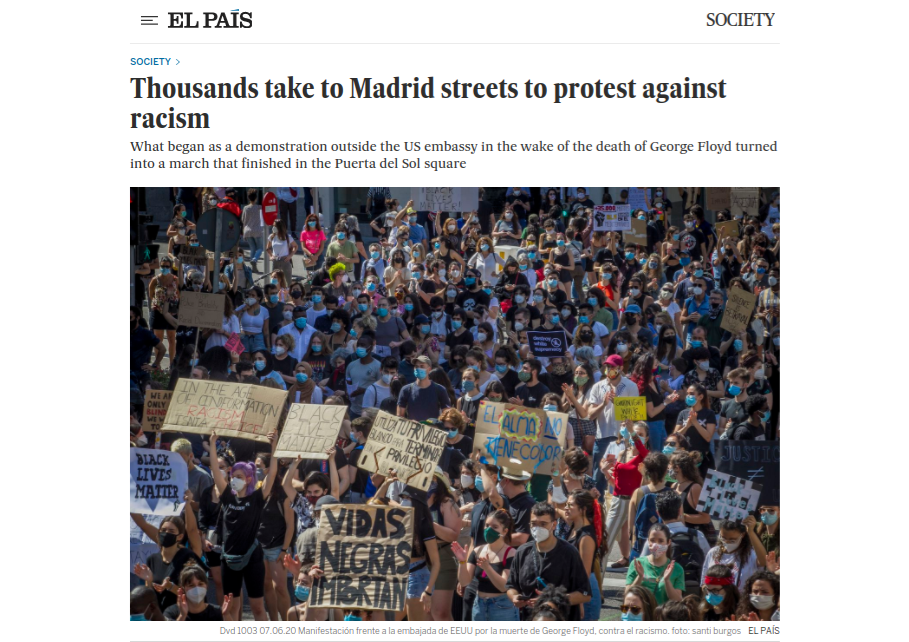
Continue reading “Some resources on racism in Spain and Portugal”
Some resources on racism in Latin America
 As mentioned in the article Estudios sobre el racismo en América Latina by María Dolores París Pombo, studies about racism in Latin America have only started to become prominent since the Eighties. París Pombo argues that this may have to do with the underlying “official” narrative, in some Latin American countries, that the mestizo (the person of combined Indigenous and European descent) and the mulato were the quintessential incarnations of national identities, chosen as such in an attempt to defend and differentiate those nations from the metropolis. For many Latin American intellectuals, racism was just a rare phenomenon. This is, of course, not truly the case and studies on racism (and also on endoracismo, the kind of unconscious and self-imposed racism that manifests as a rejection of your own identity and the undervaluation your own historical past, that has permeated in in several indigenous communities) have consolidated ever since but in different ways in different countries, depending on how they each are trying to come to terms, or not, with their own colonial historical memories and their current realities. Continue reading “Some resources on racism in Latin America”
As mentioned in the article Estudios sobre el racismo en América Latina by María Dolores París Pombo, studies about racism in Latin America have only started to become prominent since the Eighties. París Pombo argues that this may have to do with the underlying “official” narrative, in some Latin American countries, that the mestizo (the person of combined Indigenous and European descent) and the mulato were the quintessential incarnations of national identities, chosen as such in an attempt to defend and differentiate those nations from the metropolis. For many Latin American intellectuals, racism was just a rare phenomenon. This is, of course, not truly the case and studies on racism (and also on endoracismo, the kind of unconscious and self-imposed racism that manifests as a rejection of your own identity and the undervaluation your own historical past, that has permeated in in several indigenous communities) have consolidated ever since but in different ways in different countries, depending on how they each are trying to come to terms, or not, with their own colonial historical memories and their current realities. Continue reading “Some resources on racism in Latin America”



